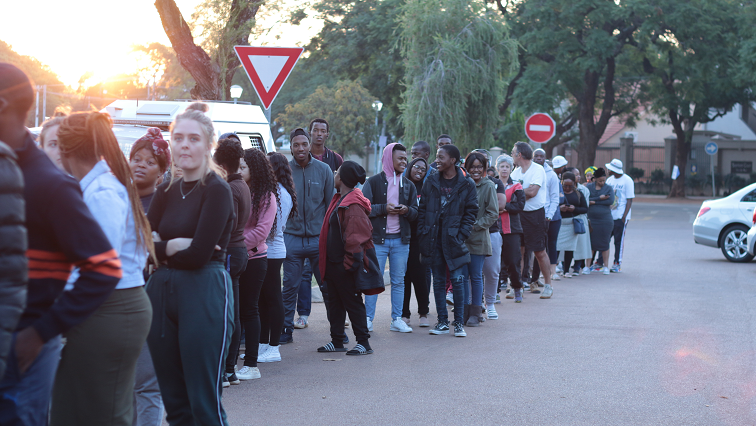South Africa’s youth are not apathetic but rather stay away from the polls due to their dissatisfaction with government performance, political parties and democracy in general.
This is the finding of a survey study by the Human Science Research Council (HSRC) ahead of next year’s elections that was unveiled at an Electoral Commission event in Kempton Park, east of Johannesburg.
The study finds that many young people boycott elections due to their belief that their individual vote does not make a difference, the lack of trust in politicians who are perceived as uncaring and poor socio-economic conditions.
The HSRC on South Africa’s Electoral Democracy points to the most negative mood ahead of elections in the country to date, with an increasingly dissatisfaction of South Africans with the functioning of electoral democracy.
Figures show that currently 57 percent of South Africans have expressed discontent with democracy compared to 28 percent who are satisfied. The youth are no exception, they have been staying away from the polls due to disillusionment with government performance and political parties.
Despite this, HSRC researcher Samela Mtyingizane says there’s hope.
“There are two silver linings here, the first is that there is a persistent belief in the importance of voting amongst many youth in our country. Remember we said close to 60 percent of our sample said I do believe in voting but I will not vote any way and it is the reasons we cited across our survey and yes, a sizable minority believe it is the duty of us to vote. So, the youth want to vote but they are dissatisfied by various reasons when it comes to democracy and our government.”
The highest levels of disillusionment amongst the youth have been registered in Gauteng and KwaZulu-Natal. The survey finds that youth targeted interventions are needed to encourage young people in South Africa to vote.
HSRC Researcher Alude Mahali says young people she spoke to want great accountability on the part of elected representatives and to be properly empowered to participate.
“We are smarter than these cheap inducements that political parties and others try to bring to us. Yes, we are hungry, we need food but we don’t want food parcels, we want people to come and tell us and empower us with information about the IEC and other skills they also shared that youth for outreach and that they should use youth targeted recreational programs as a vehicle for civic education things that they enjoy. They said we like jiving so do something around that. I love soccer so they can host a tournament and then after the tournament they can explain the importance of voting to us and of course employment.”
The participation of independents in next year’s elections and the prevalent trend of coalition governments is unlikely to whet South Africans appetite to vote according to the survey.
HSRC Research Director Ben Roberts, “We asked do coalitions make you more or less likely to vote in elections? 29 percent said it would reduce their appetite to turnout, increase your interest in voting in elections, party coalitions 37 percent said it would reinforce their interest in turning out and probably another third were so or more ambivalent. On independents candidates, respondents have not had much exposure certainly in national and provincial elections to independents like they have with party coalitions. 30 percent found that the idea of independents made them more inclined to want to turn out a slightly greater share of 36 percent said that it reduced their interest in participating in elections.”
A number of recommendations to woo voters and the youth to the polls are outside the mandate of the Electoral Commission, these include creating jobs, improving service delivery and curbing corruption.
However, the survey reveals there is much the IEC can do including making voting stations accessible, providing more education and awareness and ensuring free and fair elections.

